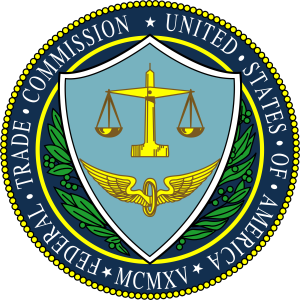 Social Media has gone from frontier to “settled land of influencers” when it comes to brand promotion. In 2020, social media ad revenues reached $41.5 billion, making up nearly 30 percent of all internet and ad revenue. The latest influencer trend has been marketing “altcoins,” which are cryptocurrencies other than Bitcoin. From YouTuber-turned-boxer Jake Paul promoting the digital coin Safemoon to the social-media veteran Kim Kardashian marketing “Ethereum Max,” cryptocurrency promotion permeates social media. On the flip side, there’s also been a boom in consumers seeking financial advice from social media platforms like Reddit’s r/WallStreetBets. However, as with all advertising, cryptocurrency promotion has raised many concerns. Among them? Are the cryptocurrencies marketed by influencers are simply pump-and-dump scams? One approach influencers try to limit liability is by including the disclaimer “this is not financial advice” in their posts and videos, but is including or hashtagging a disclaimer enough to limit liability?
Social Media has gone from frontier to “settled land of influencers” when it comes to brand promotion. In 2020, social media ad revenues reached $41.5 billion, making up nearly 30 percent of all internet and ad revenue. The latest influencer trend has been marketing “altcoins,” which are cryptocurrencies other than Bitcoin. From YouTuber-turned-boxer Jake Paul promoting the digital coin Safemoon to the social-media veteran Kim Kardashian marketing “Ethereum Max,” cryptocurrency promotion permeates social media. On the flip side, there’s also been a boom in consumers seeking financial advice from social media platforms like Reddit’s r/WallStreetBets. However, as with all advertising, cryptocurrency promotion has raised many concerns. Among them? Are the cryptocurrencies marketed by influencers are simply pump-and-dump scams? One approach influencers try to limit liability is by including the disclaimer “this is not financial advice” in their posts and videos, but is including or hashtagging a disclaimer enough to limit liability?
Articles Tagged with FTC
The FTC, Kidfluencers and the Looming Challenge of Child-Proof Disclosures
 By now, most people know that advertising on social media requires certain disclosures so as to avoid the ire of the Federal Trade Commission (FTC), which is tasked with protecting consumers from fraudulent, deceptive and unfair business practices. FTC rules concerning advertising on social media track the basic rules of traditional advertising law. For example, advertising must be truthful and not misleading, advertisers must have evidence to back up their claims (a.k.a., “substantiation”), and advertisements cannot be unfair.
By now, most people know that advertising on social media requires certain disclosures so as to avoid the ire of the Federal Trade Commission (FTC), which is tasked with protecting consumers from fraudulent, deceptive and unfair business practices. FTC rules concerning advertising on social media track the basic rules of traditional advertising law. For example, advertising must be truthful and not misleading, advertisers must have evidence to back up their claims (a.k.a., “substantiation”), and advertisements cannot be unfair.
Disclose or Else: FTC Steps Up Prosecution of Social Media Influencers
 Last week, the FTC brought its first action against a social media influencer for failing to make appropriate disclosures on sponsored posts. While it had previously prosecuted companies who pay influencers for posts such as Lord & Taylor and Warner Brothers, this marks the first time the FTC has pursued an influencer.
Last week, the FTC brought its first action against a social media influencer for failing to make appropriate disclosures on sponsored posts. While it had previously prosecuted companies who pay influencers for posts such as Lord & Taylor and Warner Brothers, this marks the first time the FTC has pursued an influencer.
“Life Is Short. Settle with the FTC” – The Cost of Ashley Madison’s 2015 Data Breach
 On December 14, 2016, operators of online extramarital dating and social networking website AshleyMadison.com came to an agreement with the Federal Trade Commission, and several States, to settle FTC and related state charges that the website deceived consumers and failed to protect 36 million users’ account and profile information. As we discussed immediately following the July 2015 breach (and in several later posts) the data of some 36 million AshleyMadison.com accounts was posted online. It was reported by KrebsOnSecurity that the breach included the theft of user databases, financial records (including salary information), and other records from AshleyMadison, Cougar Life, and Established Men, three social networking web sites operated by the Toronto, Canada-based firm Avid Life Media, now known as Ruby Corp.
On December 14, 2016, operators of online extramarital dating and social networking website AshleyMadison.com came to an agreement with the Federal Trade Commission, and several States, to settle FTC and related state charges that the website deceived consumers and failed to protect 36 million users’ account and profile information. As we discussed immediately following the July 2015 breach (and in several later posts) the data of some 36 million AshleyMadison.com accounts was posted online. It was reported by KrebsOnSecurity that the breach included the theft of user databases, financial records (including salary information), and other records from AshleyMadison, Cougar Life, and Established Men, three social networking web sites operated by the Toronto, Canada-based firm Avid Life Media, now known as Ruby Corp.
The FTC Offers Businesses Tips on How to Respond to a Data Breach
It seems like managing data breaches has become a part of doing business these days. From the October denial of service attack on Dyn (a company that provides core internet services to companies like Twitter, Spotify and Netflix) to the recent hacks of the Clinton campaign’s emails, data breaches are increasing in frequency, scope and cost. The average cost of a data breach increased to $4 million in 2015, and the 2016 Cost of Data Breach Study: Global Analysis published by IBM and the Ponemon Institute places the likelihood of a company having a material data breach involving 10,000 lost or stolen records in the next 24 months at 26 percent.
Warner Bros.’s “Paid to Play” Disclosures Draw FTC Action
Earlier this year, the Federal Trade Commission (FTC) went after Warner Bros. Home Entertainment Inc. for not clearly representing that several digital influencers were paid as part of a marketing campaign for the video game Middle Earth: Shadow of Mordor. (See our prior posts on FTC enforcement of its disclosure requirements.) According to the complaint, these influencers were paid amounts ranging from hundreds of dollars to tens of thousands of dollars and received advance-release copies of the game with instructions on how to promote the game. The sponsored videos were viewed more than 5.5 million times. One very popular influencer, Felix Kjellberg, known as “PewDiePie” on YouTube, created a video that has been viewed over 3.7 million times by itself.
FTC Guidance: Update Privacy Disclosures to Keep Pace with Advances in Online Tracking
The Federal Trade Commission recognizes that many people benefit from companies’ online tracking by getting advertising that is more targeted to their preferences. However, as the technologies and techniques used by companies and advertisers to uniquely identify and track individuals’ online behavior advances, the FTC warns that companies’ privacy disclosures and practices must be updated. Failure to do so could be considered deceptive under the FTC Act.
The FTC Act and the Importance of Staying Transparent
 We’ve written previously on the rise in FTC scrutiny and enforcement regarding the use by companies of paid digital influencers without the proper disclosures. Recently, retailer Lord & Taylor found itself in the FTC’s crosshairs when it employed bloggers and Nylon magazine as part of a very successful campaign to promote a clothing collection online and on social media. Unfortunately, the campaign was less successful in its compliance with the FTC Act.
We’ve written previously on the rise in FTC scrutiny and enforcement regarding the use by companies of paid digital influencers without the proper disclosures. Recently, retailer Lord & Taylor found itself in the FTC’s crosshairs when it employed bloggers and Nylon magazine as part of a very successful campaign to promote a clothing collection online and on social media. Unfortunately, the campaign was less successful in its compliance with the FTC Act.
Along with colleagues Lori Levine and Lauren Lynch Flick, we’ve taken a closer look at the case in Lord & Taylor Case Shows the Importance of Transparency in Advertising, itself just the latest example of how companies can run into trouble when they fail to fully disclose a promotion or advertisement.
As Reliance on “Digital Influencers” Grows, So Does FTC Enforcement
As we saw in a prior post regarding Kim Kardashian and Instagram, the FDA pays attention to how brand companies use paid celebrities to endorse their products. Likewise, the FTC closely scrutinizes how brand companies use paid or sponsored endorsers. Be it digital influencers or bloggers, brand companies must be mindful of the disclosures required to be made in connection with any advertisement or promotion disseminated by an endorser for the brand company. If the brand company provides compensation of any kind to the endorser in exchange for the promotion, FTC regulations require disclosure of this fact. Per the FTC’s 2013 .com Disclosures guidelines, the disclosure must be “clear and conspicuous.” If the brand company uses an advertising agency, the company must ensure that the agency is complying with the FTC’s regulations. Ultimately, the brand company can be held liable for FTC violations by its advertising agency.
 Internet & Social Media Law Blog
Internet & Social Media Law Blog



